Growing up, mangoes were a rare and special treat. Nowadays, they are much easier to come by. Plus, when they are in season, they can be pretty reasonably priced! But because so many of us in the United States grew up only rarely (if ever) having them, many of us don’t know what to do with them, other than slurping them up with gusto. So, I wanted to share my tips on how to cut a mango, as well as a super easy and delicious mango salsa recipe (and other recipes), so you can start to explore the many ways that mangoes can bring joy to your taste buds!
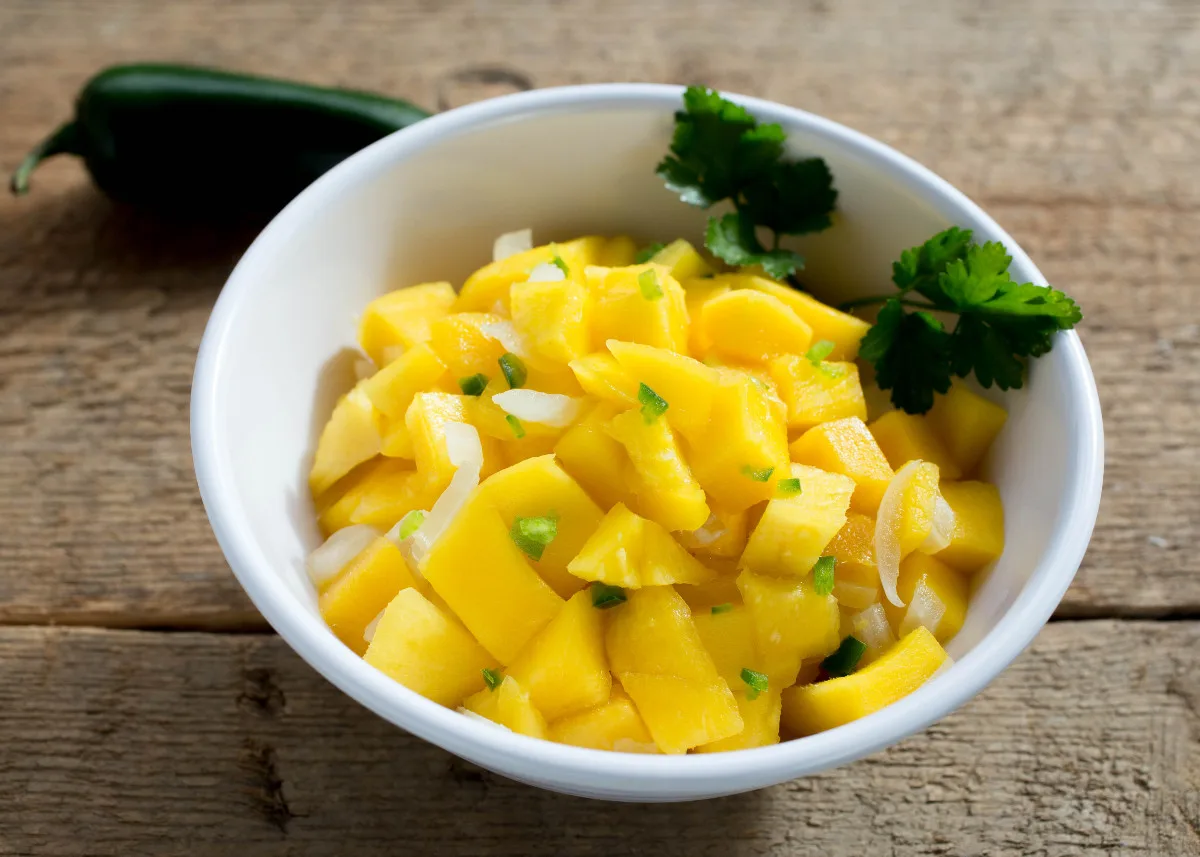
Note: This page contains affiliate links. If you purchase a product through these links, your cost will be the same but The Scramble will receive a small commission. I only link to products I personally use, trust, and love. If you want to learn more, please check out my disclosure page. Thanks for your support!
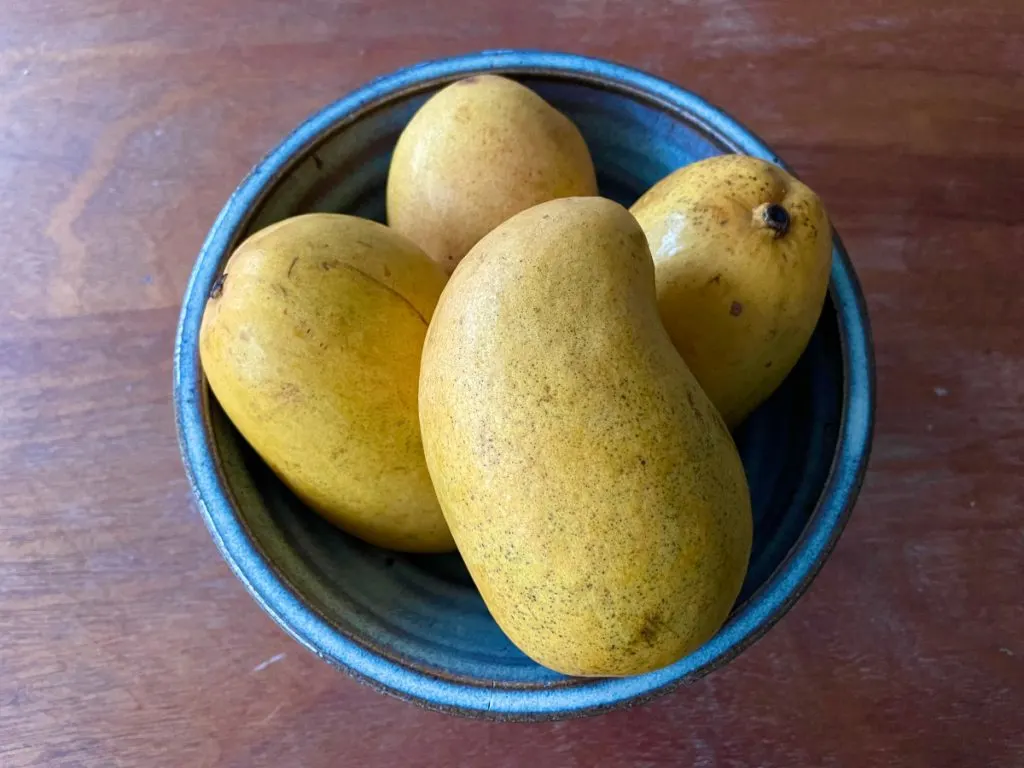
Different Types of Mangoes
While there are many, many different types of mangoes grown all over the world, there are two types that are more commonly found here in the United States: Tommy Atkins (also called Haden or Kent) and Ataulfo (also known as Champagne or Honey). Here are some tips on what they look like, taste like, and how to tell when they are ripe.
Tommy Atkins/Haden/Kent Mangoes
These are what you probably think of as classic mangoes. They are red with green and yellow overtones. Taste wise, they’re sweet, with a touch of sourness. You can tell they are ripe when the green parts turn more yellow and they are slightly soft to the touch.
Ataulfo/Champagne/Honey
These mangoes are smaller than Tommy Atkins mangoes. They have also become easier to find, including at stores like Costco and Trader Joe’s. They are sweet with a sour hint and are less fibrous than Tommy Atkins mangoes. You can tell they are ripe when they go even more golden and small wrinkles form on the skin.
When Are Mangoes in Season?
Mangoes are at their peak from March through July, but you will often see them on sale in the grocery stores in March and April. You can find a helpful chart on mango seasonality here.
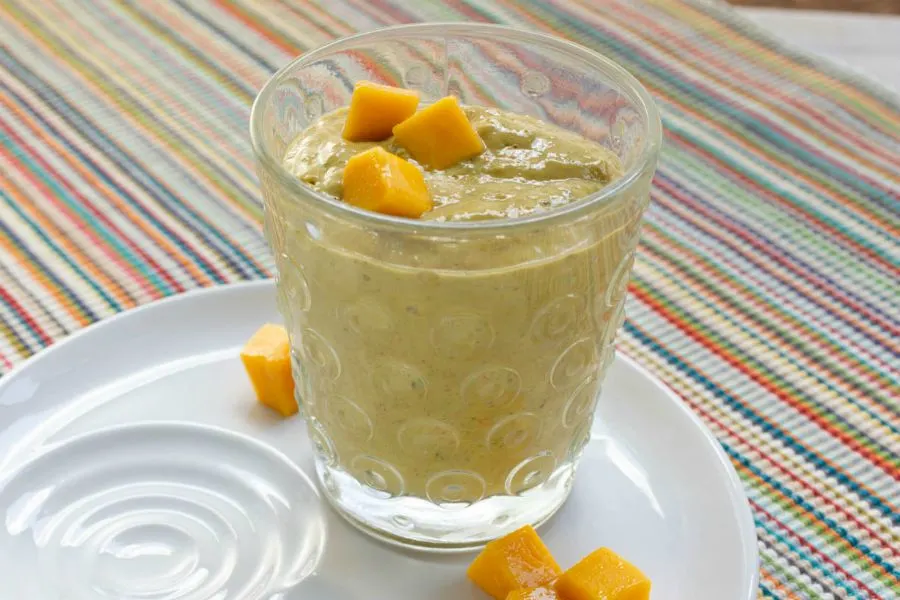
Nutritional Benefits of Mangoes
Not only are mangoes delicious, but they are also really good for you! Just one cup of mango can provide you with 67% of your needed Vitamin C, which is important for iron absorption, immune support, and cell repair and growth.
But those aren’t the only immune boosting vitamins that mangoes provide. They also serve up a nice dose of Vitamin E and a number of B vitamins.
In addition, mangoes are rich in folate and copper, which are especially important for pregnant women as they promote fetal growth and development.
Mangoes are also a great source of antioxidants, which helps to prevent cell damage.
Finally, mangoes can help to keep you regular and to support your digestive health in general. This is because they offer a good dose of fiber, as well as amylases, which is an enzymes that help to break down complex carbohydrates.
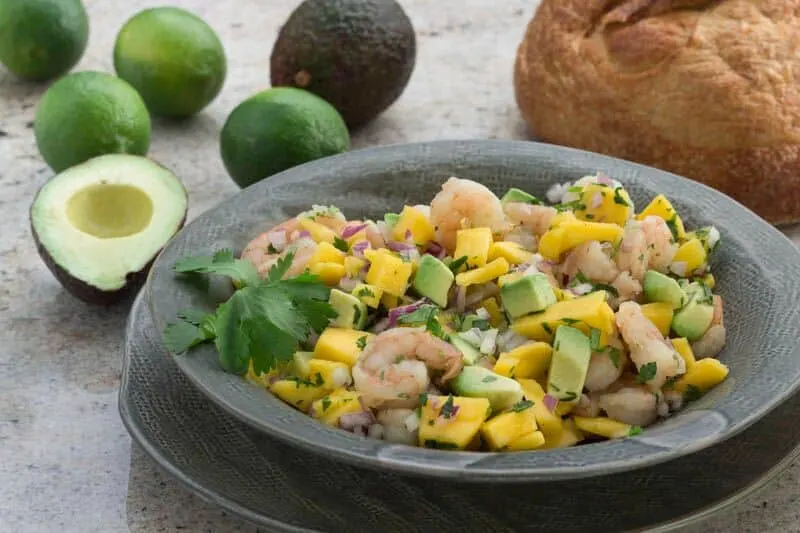
How to Cut a Mango
Mangoes can be diced or sliced, depending on how you want to serve them. Here is how to do both.
How to Dice a Mango
Step 1: Hold the mango so that the base of the mango (the stem end) is resting on the counter.
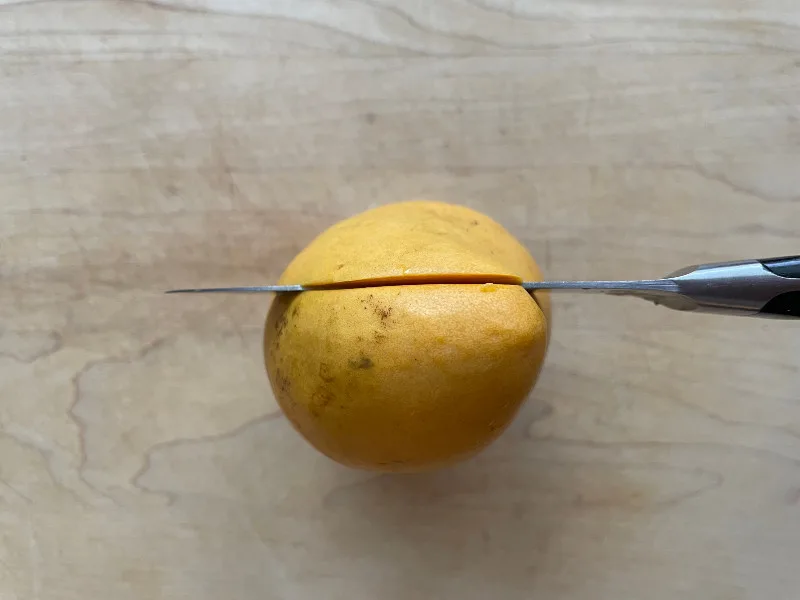
Step 2: Cut vertically, about ¼ of an inch away from the midline – this will make it so that you avoid the pit inside.
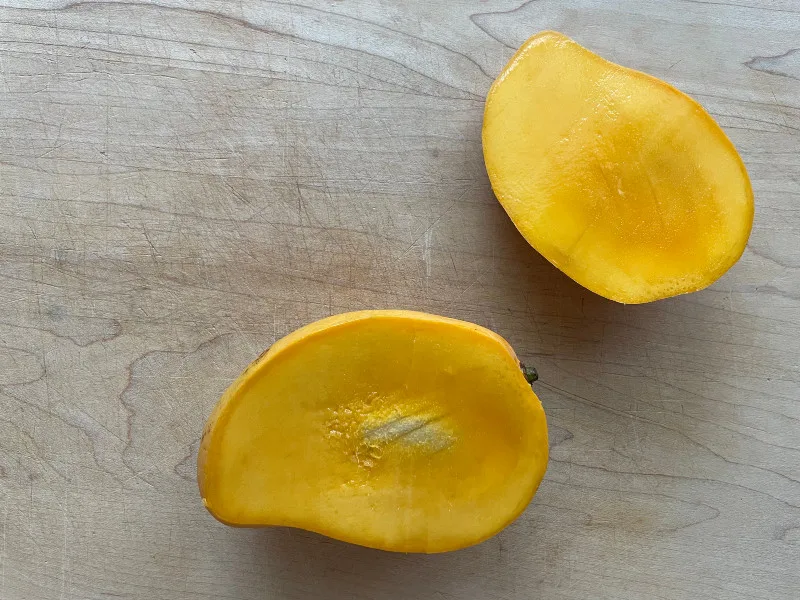
Step 3: Repeat on the other side of the pit.
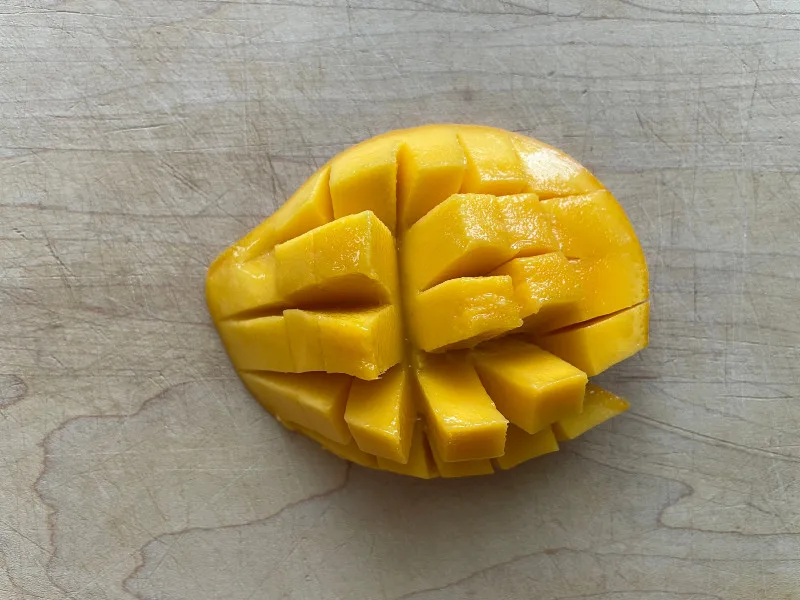
Step 4: Cut the flesh inside each half of the mango in a grid-like pattern, making sure not to slice all the way through the skin.
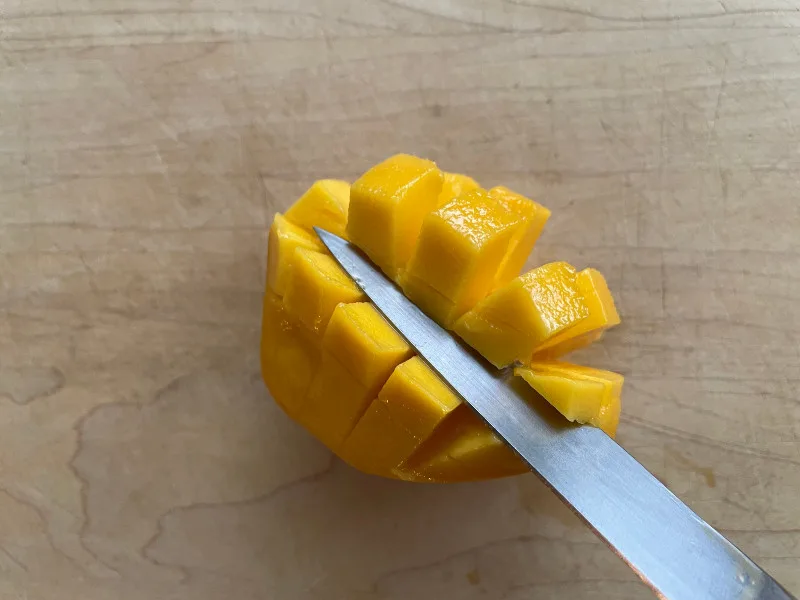
Step 5: There are two potential ways to take the next step. Option 1 is to gently push the skin of the mango half so that the mango flesh pushes outward, then slice the diced mango off. Option 2 is to use a large spoon to scoop the diced flesh out from the skin.
How to Slice a Mango
Step 1: Hold the mango so that the base of the mango (the stem end) is resting on the counter.

Step 2: Cut vertically, about ¼ of an inch away from the midline – this will make it so that you avoid the pit inside.
Step 3: Repeat on the other side of the pit.
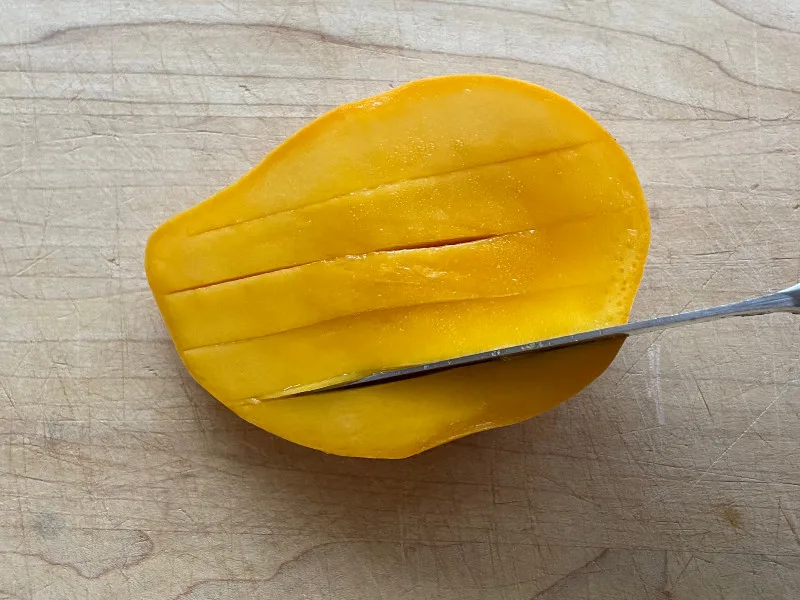
Step 4: Slice the flesh inside each half of the mango as thin or as thick as you want your slices to be, making sure not to slice all the way through the skin.
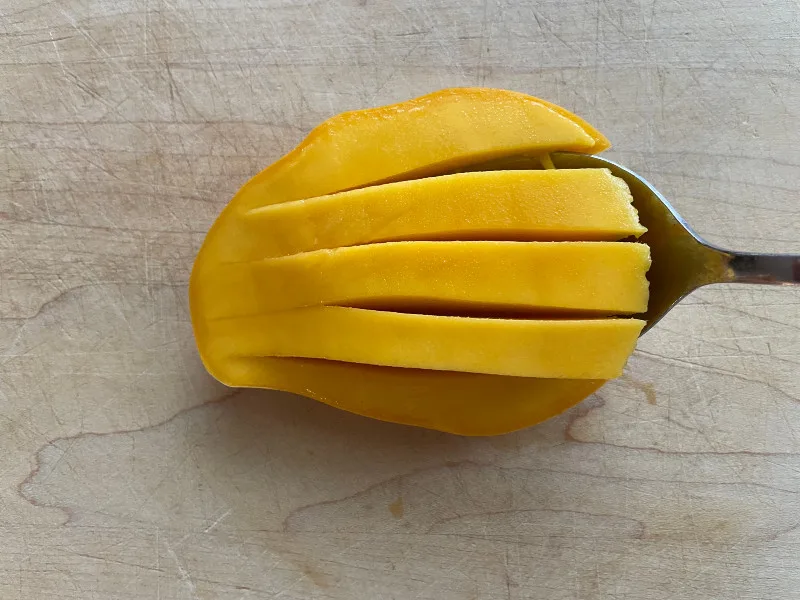
Step 5: Use a large spoon to scoop the sliced flesh out from the skin.
Or Use a Mango Slicer
If, like my family, you love to eat mangoes when they are in season, another great option is to use a mango slicing tool, like this one.
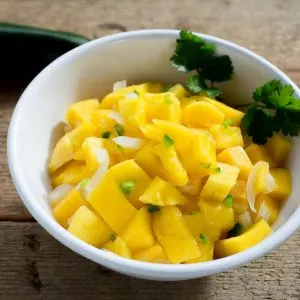
Mango Salsa
Ingredients
- 1 ripe mango diced (about 1 cup)
- ¼ – 1/2 sweet yellow onion finally diced (1/2 cup)
- 1 jalapeno finely diced, with or without seeds, depending on your tolerance for spice, about 2 Tbsp.
- 1/2 lime juice only (about 2 Tbsp.)
- 1/4 tsp. salt
Instructions
- Combine all ingredients in a non-reactive serving bowl and refrigerate until ready to serve (up to 24 hours).
Notes
Nutrition
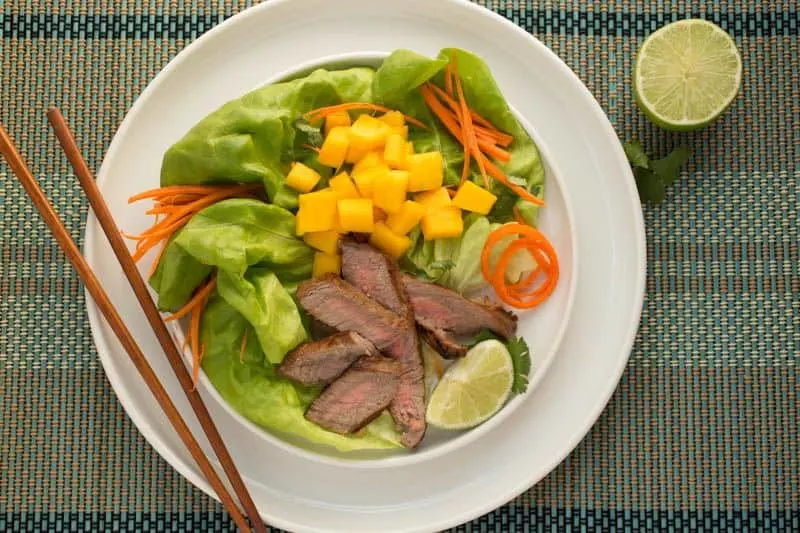
Want more mango inspiration? Here are some other great mango recipes.
Mango, Cucumber, and Lime Salad
Shrimp, Mango, and Avocado Salad with Lime
Honey-Glazed Chicken with Mango Salsa
Caribbean Quinoa, Corn, and Mango Salad
Want to Explore Other Ingredients? Here are some other how-to posts you might enjoy.
How to Make Sweet Potato Toast in the Toast or Oven
How to Cook Spaghetti Squash in the Microwave
Root Vegetables Celebrate the Flavors of Fall
